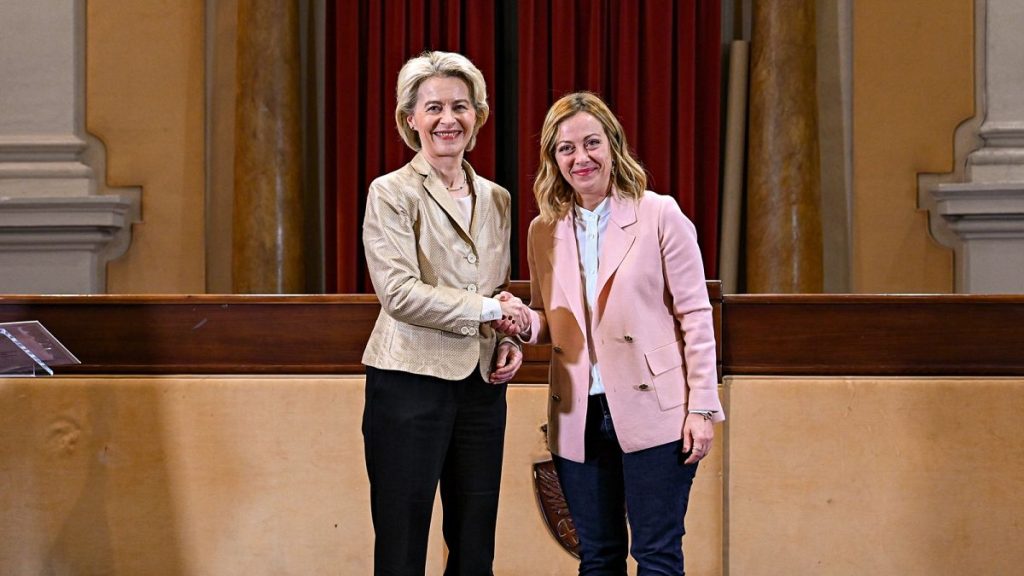The European People’s Party (EPP) will not seek a formal alliance with Giorgia Meloni and her hard-right European Conservatives and Reformists (ECR) group in the upcoming European Parliament mandate. EPP’s Secretary General, Thanasis Bakolas, stated that they will aim to form a majority with friends and allies like the Socialists and Liberals, with potential cooperation with the Greens. Cooperation will depend on whether lawmakers are pro-European, pro-rule of law, and pro-Ukraine. Bakolas praised Meloni for her constructive approach to European politics and acknowledged her influence in the European Council.
Despite previous speculation about a possible EPP-ECR alliance, incumbent President Ursula von der Leyen has shifted towards building a centrist majority with the Socialists and Liberals for the next five years. The Greens, who experienced a decrease in MEPs, were not explicitly mentioned as part of this pro-European majority by von der Leyen. Bakolas expressed openness to the Greens as potential partners for a grand coalition that can grow. He predicted that the “cordon sanitaire” will hold, indicating that the Greens will likely not be included in their alliance.
As the European leaders prepare to meet in June to discuss the distribution of top jobs, including von der Leyen’s re-election bid, there are concerns about her ambitious Green Deal. Some EPP members, such as Les Républicains from France, have criticized von der Leyen for embracing “de-growth policies promoted by the left.” Bakolas emphasized the need to motivate EPP MEPs to follow the party’s line and maintain a centrist coalition in the Parliament. He noted that the EPP must navigate through political challenges to ensure cohesion within the party.
The EPP’s stance against the Green Deal, particularly in opposing the Nature Restoration Law, has sparked controversy and divided opinions. Progressives argue that the EPP’s resistance to the Green Deal jeopardizes efforts to achieve climate neutrality. Bakolas acknowledged a collective failure in approaching the Green Deal, suggesting that it was too ideologically driven and lacked emphasis on the competition angle. This critique mirrored arguments made by the ECR group, who vowed to overturn the Green Deal and protect citizens, farmers, and businesses from its perceived negative impact.
Bakolas stressed the importance of ensuring the success of the Green Deal while also addressing concerns about its ideological approach. He highlighted the need to incorporate a competition angle to balance environmental goals with economic considerations. The EPP’s approach to the Green Deal reflects a broader debate within the European Parliament regarding the role of environmental policies in shaping the future of the EU. Ultimately, finding common ground among different political factions will be crucial in addressing climate change and fostering sustainable growth in Europe.


